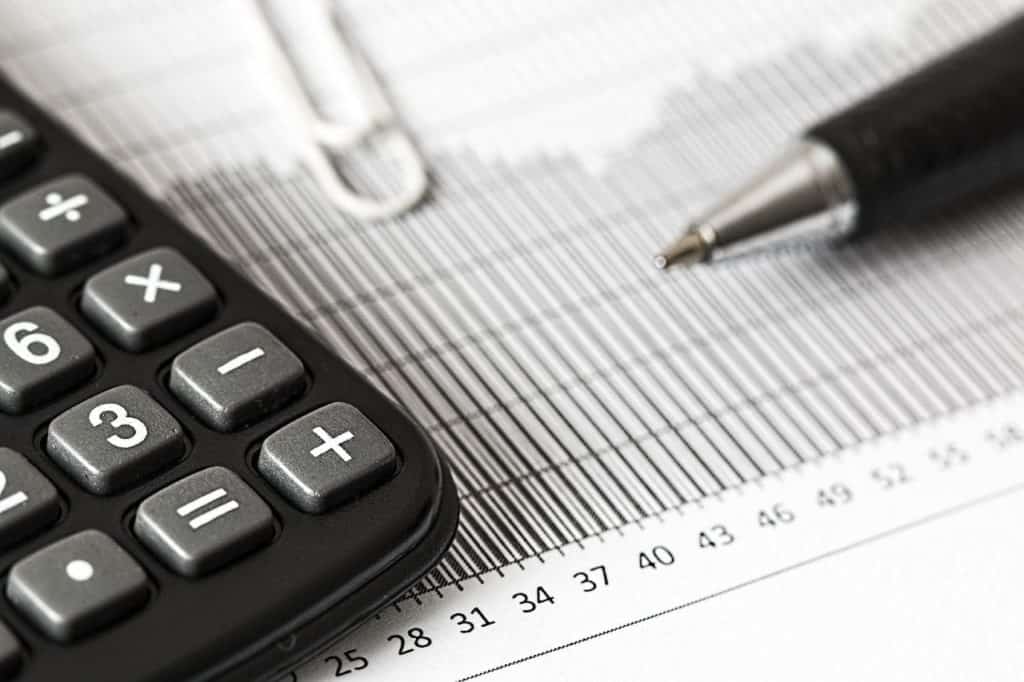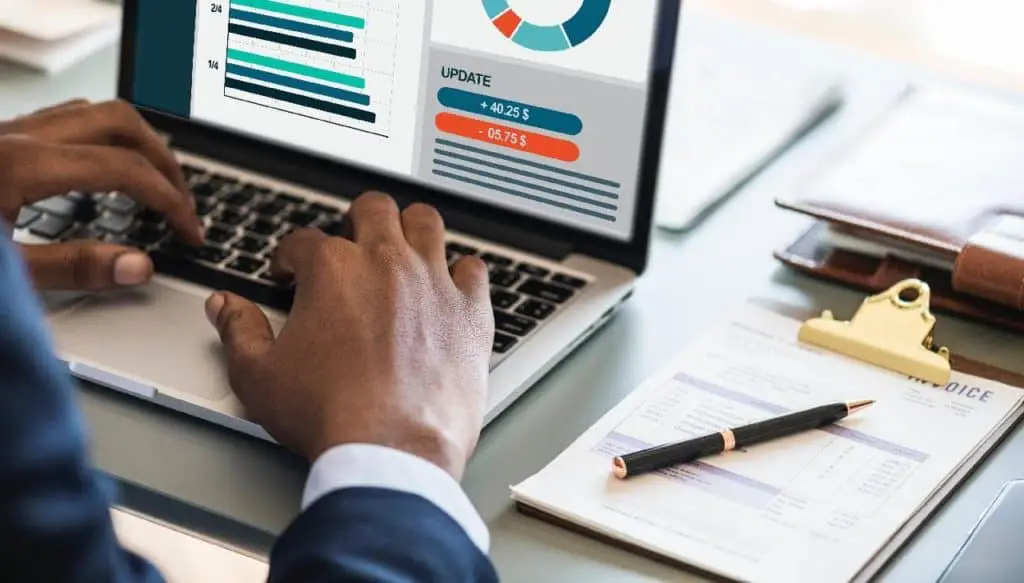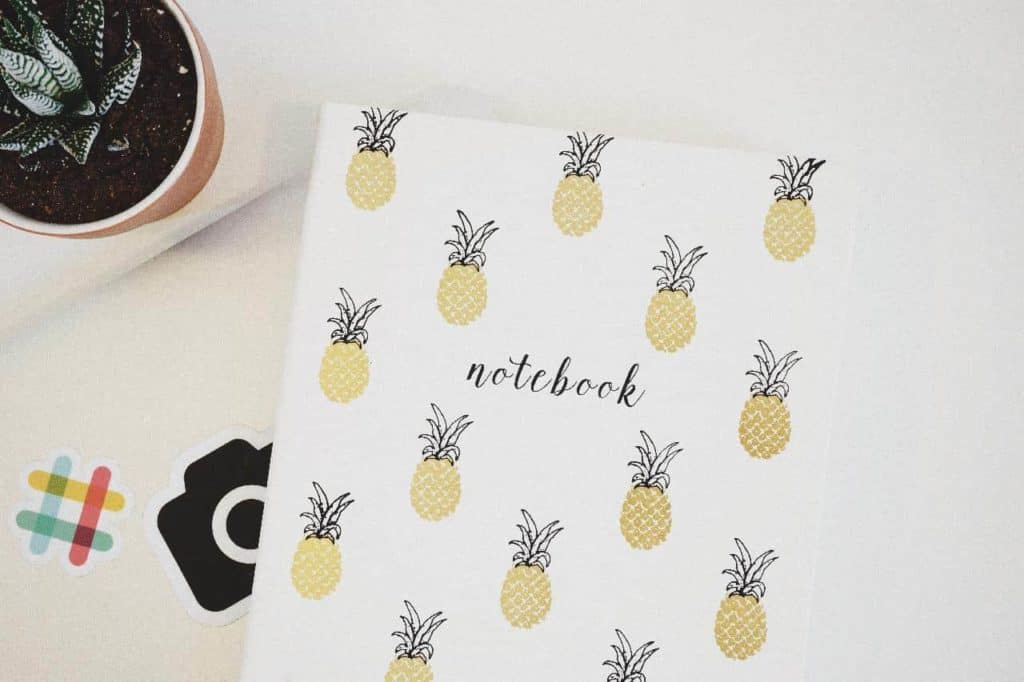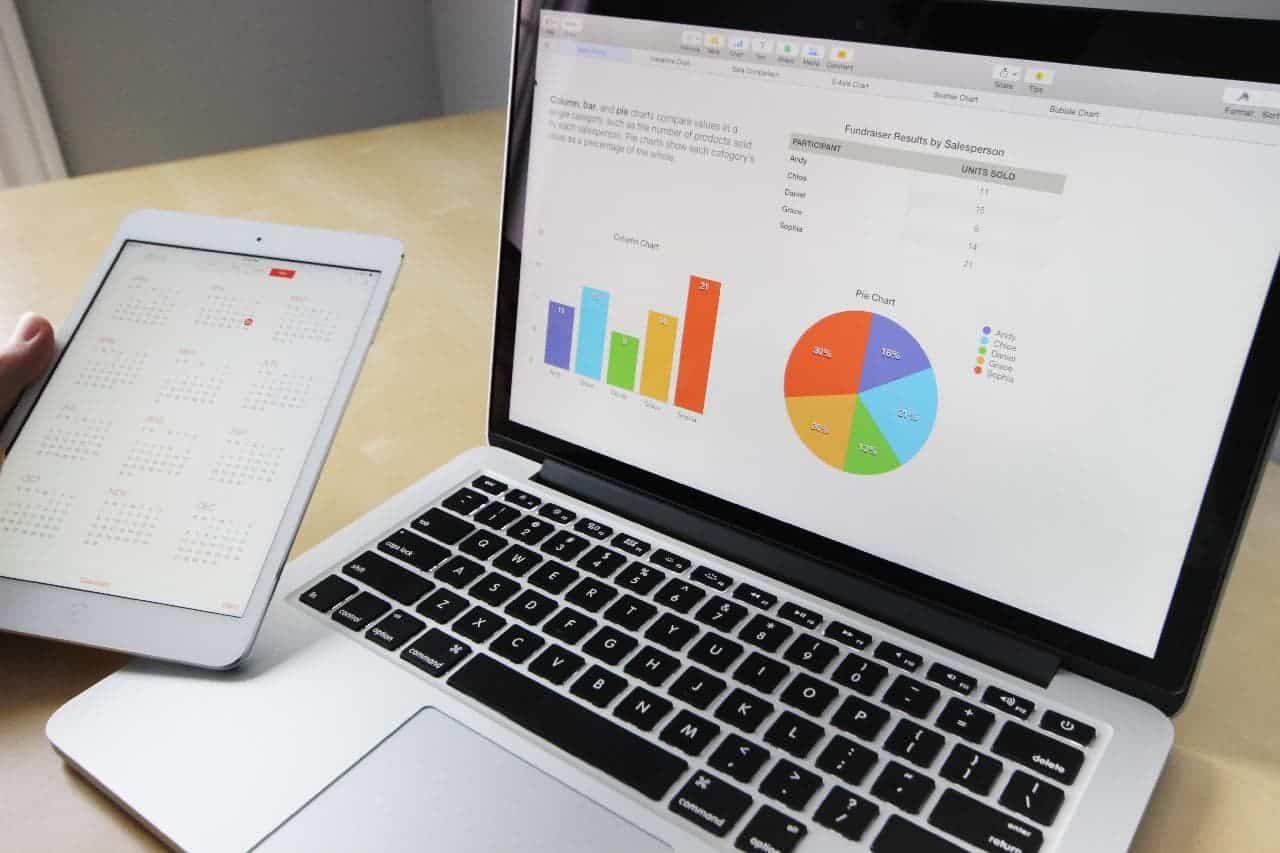Budgeting paycheck to paycheck is a real ting and a lot of people practice paycheck budgeting. Do you wish you could take your paycheck and budget it within 15 minutes? This is a life question that many people ask themselves, and it can be done.
Budget by paycheck is a method where you appropriate money for each paycheck to go towards certain, goals, bills, and expenses. Whether you get paid weekly, bi-weekly, or monthly, budget by paycheck can be used in all those scenarios.
Wanting to get out of debt and save? It just takes some organization and personal discipline. Some people use a financial order of operations, but there are other ways as well.
Below we will discuss how you can budget each of your paychecks in 15 minutes or less!
What Is Paycheck Budgeting?
Paycheck budgeting means that you only spend money on the things that are in your budget that you can pay for with your paychecks. Each paycheck is dedicated to covering certain expenses for the month. For example, your first paycheck received in a month may cover your car payment, utilities, and rent. Your second paycheck would go to other items such as food, insurance, and other expenses.
This is a very effective way to save because it forces you into what we call, “cash-flow discipline”. It can seem daunting at first when you know nothing about how much money comes in each week and how much goes out. I am learning how to budget this way because I don’t want to work much longer.
It’s important to know that paycheck budgeting helps you make ends meet. If there’s ever an emergency, or if the rent is due and not enough money comes in that month, paycheck budgeting will help you out of any sticky situation because all your spending has already been accounted for. You can even use it to help you pay cash for a car you plan to buy.
This method splits categories into two sections: fixed expenses (such as rent) which are accounted for on monthly or bi-weekly basis; and variable expenses like groceries or gas which fluctuate with each paycheck.
The paycheck budgeting method encourages people to save an amount equal to their after tax income from every paycheck towards paying down debt such as credit card bills, car loans, mortgages etc., while they set aside some cash for savings before spending anything else. If paying down outstanding balance vs principal balance, it doesn’t matter with this system.
Who is the Paycheck Budget Method Meant for?
This personal budgeting method is great for people who don’t understand how much they make every month and want a simpler way to see what they spend their money on. It’s also perfect for college students, because it forces them into cash-flow discipline in order to avoid student loans.

The paycheck budget method makes you think about your purchasing decisions before making a purchase. It’s also a good strategy if you are living below your means to FIRE.
For example, I know that this week I have $200 allocated towards groceries out of my first monthly paycheck. However, I only need to buy four things at the store. When I go shopping today with my friends and we’re deciding between two products, one which costs $50 and one which costs $30, I’ll have to weigh the pros and cons of each. Making purchasing decisions can be a lot easier if you only need to think about what’s best for your budget.
People Who Want to Improve Their Money Management Skills
If you are looking to improve your money management skills, using the paycheck budget method can help you budget in a way that is manageable and sustainable.
Focusing on paychecks earned is how to teach teens about financial responsibility early on, but can be applied to all ages.
Learning money management skills will help you become more confident about your finances and make better decisions in the future.
You will be able to identify spending habits that are more harmful than others, like impulse buying or paying bills late, which can lead you back into debt. With these skills, now is a great time for you to start thinking about saving money as well!
Maybe you are debating will canceling a credit card stop recurring payments? You can use the paycheck system to manage those services.
A budget doesn’t have to mean going without – it just means being smart with how you’re spending your paychecks each month so that all of your needs are met while still having some extra cash left over at the end of every week. It’s never too soon to learn good financial management skills – this article has been written especially for those looking to get started on using their paychecks to budget.
People Who Have a Hard Time Saving Money
Some people have a hard time saving money. You can imagine what happens if you don’t save for retirement and emergencies. One reason for this is that they are not budgeting. They spend the same amount of money every month and do not keep track in any way how much money they have left to save at the end of each pay period.
The other problem people face when trying to save money is impulse buying. If you’re like most Americans, it’s easy to find yourself spending a lot more than you intend on items after seeing them advertised or being talked into an expensive purchase because someone else has convinced you want it right now.
This budget method helps people who have a hard time saving by budgeting and saving money in a way that is simple, easy to follow and takes less than 15 minutes per month.
People Who Have Irregular Income
By using the paycheck budget method, people who have irregular incomes can budget the same amount of money every month and not worry about how much they have left to save at the end of each pay period. It’s also great for those on a fixed income with no change in their monthly budget, as it eliminates having to predict what your expenses will be from one paycheck to next. There are many budgeting tips and tricks for irregular earners.
For irregular income earners, they should project using one of their lower monthly income amounts and base their budgeted income on that. For example, if someone’s monthly income averages out to $2,500 but they have two months this year where their average is closer to $3,000, then they would budget with the lower amount of $2,500 for even distribution throughout the year and make up any difference by adding in a personal savings goal.
It can be difficult managing your money when you’re dealing with an irregular income because it means there are many unknowns on how much you’ll earn each month or what expenses will come up unexpectedly. Using the paycheck method and budgetary guidelines to budget takes some of these uncertainties out so people know exactly how much money they should set aside per pay period before taxes are taken out.
People Who Are Trying to Get Out of Debt
Most importantly, when you know that there is an established budget already in place before you get paid, then putting complete focus into saving becomes so easy because you’re working towards something specific while using this simple method. That feels rewarding for many people who are trying to pay off debt.
Paycheck Budgeting Helps People Save Money
Not only does this method help keep track of your finances without guesswork or complicated budgetary spreadsheet formulas, but it also helps to keep your budget on track. It even helps with retirement and knowing how to retire on 500k starts with saving.
Paycheck Budgeting is not Going Out of Style
In a society where people are looking for ways to create more cash, the paycheck method to budgeting will always be popular because it provides an easy way to stay in control of your money while still having some fun with spending!
Paycheck Budgeting Is a Great Option for Pay-To-Own Purchases
You can use paycheck budgeting as a way to pay for lease purchases of items. Discover what is progressive leasing as a way to make monthly or bi-monthly payments for your items.
Additionally, you can plan that recurring payment into your paycheck budgeting system.
- There are also stores that accept afterpay for everyday items where your payments can be spread out. This effectively will help you budget.
Steps for Budgeting Paycheck to Paycheck
Knowing the steps for paycheck budgeting will make the process simple and fast. The key to this method is planning. Without planning, this system is not effective. You can manage your debt and save more money in life at the end of the month.
If you don’t have an account at a bank, decide on checking vs. savings account first.
There are many banks that don’t use Chexsystems if you ware worried about being approved.

Planning your income and expenses is the key to paycheck budgeting.
Below are the Steps to Paycheck Budgeting
Determine Paycheck Income for the Month
Calculating your paycheck income for the month should be done before budgeting your expenses. If you know how much money is coming in and how many paychecks you have this month, the rest will be easy to plan for!
As an example, you can see how much $40,000 is per year per hour to help visualize income determination per month. You may also need a monthly calendar for visualization.
If you are paid biweekly, you will have two months where you will receive three paychecks when you get paid. You can address those extra paychecks in a few ways:
- You can disregard them and put them towards your emergency fund (or sinking funds) and only use two paychecks per month for all months.
- The other option is to add up all 26 paychecks for the year and divide by 12. That will give you an overall monthly average of income to use.
Either one of these options will work.
In addition to accounting for things like salary or wages from one’s job, also include other sources of income if they are significant. Some examples might be other streams such as side hustles, other jobs, tips earned (such as waitresses), bonuses from work, interest earned on investments and so forth.
Add Up All Fixed Expenses for the Month
Once you have determined your income for your monthly budget, you need to plan out your expenses.
The next thing to do is create categories for your fixed expenses then write down how much each category needs every month.
Add up all of the fixed expenses that you can budget for, including housing or rent, utilities (electricity and water), car insurance, gas money to get around. Dedicate which paychecks each month will cover these expenses.
Fixed expenses will be different from one person to the next, but the most important thing is to plan for them and which paycheck you will use to pay for the expense. You can use starter checks to pay your bills if you don’t use apps.
Paycheck Budgeting Examples of Fixed Expenses:
- $1200/month rent
- $100 electricity bill
- $75 Internet Expenses
- Car insurance:
- Varies by state and coverage level, on average it’s around $200 a year; you can get quotes from different carriers to try and reduce it.
- Mortgage:
- Fixed monthly payment of about 20% of your gross salary pre taxes and before deductions are taken out. This includes property tax, mortgage interest rate which changes every quarter so that needs to be updated as well, homeowner’s association fees which vary depending on where you live.
Add Up All Variable & Discretionary Expenses for the Month
After you have noted your fixed expenses, take some time to determine your variable ones too. If you need to cash your check, there are a lot of instant online check cashing options. You need to figure out how much you will spend each week on these variable expenses by looking at your past purchases in a budgeting app or just calculate it based off of what has been spent before.
Figure out if there is any way that this amount could go up during the month. An example might be maybe if someone was sick over Thanksgiving so they needed more medicine and trips to the doctor?
Just like fixed expenses are dedicated and tied to a certain paycheck each month, so are variable ones too. Using paychecks prior to the due dates of bills make the most sense. You wouldn’t be able to use your paycheck you receive on the 3rd of the month for your rent that is due on the 1st of the month because it would be late. Therefore, you have to use your paycheck prior to the first to cover your rent.
By figuring all of these variables into your monthly spending plan ahead of time, you will help keep everything running smoothly! You can even use it for extra money such as third party checks you receive.
Paycheck Budgeting Examples of Variable Expenses:
- Food & Groceries
- Phone Bill
- Household & Home Repair Items
- Movie outings with friends
- Christmas
- Gym membership or other activities where you buy a package of classes upfront.
Tip: Consider spreading out your purchases to avoid paying for an entire movie outing in one month, and instead buying tickets throughout the year.
Include Emergency Fund and Savings Contribution for Unexpected Expenses
Including a savings contribution each month to an emergency fund or sinking funds is also a great way to budget.
An emergency fund is an account that has enough money in it to cover any unexpected expenses, such as car repairs or doctor visits! Most people don’t have enough in their savings and must make their bills with current income coming in according to NPR.
Up above we detailed what to do with the two extra paychecks you have per year if you are paid biweekly. Having them go into your emergency fund is a great way to build up savings reserves. It’s also a good way to keep your overall budgeting easier as well.
Budgeting for unexpected expenses can be done by taking a percent of overall expenses. Roughly speaking, for every $1,000 in monthly expenses you budget about a hundred dollars to unexpected expenses. This would work out to a 10% savings contribution to your fund for emergencies.
Subtract All Expenses from Monthly Income
Including your savings for emergencies, subtract all of your monthly expenses mentioned above from your income.
This is the number of dollars you have left over after you have budgeted each paycheck received in a month for things like groceries, mortgage payments, and other bills each month.
This amount is what is left over after you have paid all monthly obligations in your budget.
The result of this step is the amount you have left over to spend on anything or save for any expense that comes up in a given month.
You can choose to put this money towards your emergency fund, retirement savings, or anything else you want. Other options include taking a portion of it as well to alleviate your debt obligations noted below.
Use Remaining Monthly Income to Pay Down Debt Obligations
Even if the future of money changes, you will still receive money in some form. From the money that is left over after expensed each month, you can reduce your total debt.
If you have any debt to pay off, this is a great way to do it.
- The first thing that should be paid down are high-interest debts like credit cards and student loans (unless the interest rate on your student loan is lower than what you get in an investment account).
This will also help reduce your monthly bills so that when budgeting for next month there might not be as many monthly bills and expenses.
- Paying down your unsecured debt will also give you more money at the end of the month once all of the accounts have been paid.
Each month, you will be able to see how much more money is available for your budget.
This way of budgeting has been shown time and time again that it can help payoff debt without having to worry about the number in your bank account or even what type of credit card company you have a balance with.
Paying down high-interest debts early on also means not paying interest each month so that money starts building up instead of draining out right away.
This type of budgeting method is usually recommended by financial advisors because there are many benefits from starting off this process as soon as possible if it’s something that needs attention now and then later on when one gets older (especially those who constantly find themselves dealing with credit cards and collections).
Best Paycheck Budgeting Resources
There are a couple of resources that you can use to help you create a budget when it comes to your paycheck to save more money. Everybody’s threshold for technology is different, so this is just a general list of resources.

Use a Budget Workbook to Record Paychecks & Income
If you’re not tech savvy, you can use a budget workbook. These are usually found in the business section of your local bookstore and they can be great for those who have a hard time staying on top of their finances because it helps them to see how much money goes where, what should ideally be going there and when it’s needed while budgeting according to paychecks. There are also a lot of check cashing apps that don’t use Ingo if you prefer a different provider.
Create a Paycheck Budget Worksheet
If you are good with spreadsheets, you can use a free budget worksheet as a planner. This is a spreadsheet with columns that represent each pay period, and rows for the budget categories. You will use the lines to fill in how much you will spend or save in each category for each pay period so that you can see if there’s anything out of whack.
You can also use this worksheet system to organize your life finances. One of the best tips is that paycheck budget worksheets can also be printable if you are looking for a free system to monitor your bill payments and manually write your dollar amounts down.
Use an Online Budget Calculator
If working with numbers isn’t your thing, then use an online budget calculator. These calculators usually have pre-set budgets based on income and household size which are customizable.
Using a personal calculator might be easier than creating one from scratch but they also make assumptions about what kind of lifestyle you’re living (cheap vs expensive). You may need to tweak these when using them as well since they don’t account for variable dollar expenses and home repair costs.
Calculators also may not take into account budgeting for emergencies so you’ll need to factor those in as well if planning to use as a management tool.
Utilize Financial Software
For people more tech savvy, software can help you get started as well. Know the differences between Quicken vs. QuickBooks for personal finance management There is an app specifically called “Mint” that will allow one to input all financial information so that everything is balanced out at the end of each month which makes things easier for those trying to keep track of every little detail about spending habits or even retirement contributions.
You can also use software how to use QuickBooks for personal finances for budgeting and projecting.
Use Bank Apps & Financial Apps
Check with your bank because they may offer free budgeting apps just for being their customer.
A number of banks have apps that will allow you to budget your money according to what is coming in and going out. This can make it easier for people who are trying to get into the habit of budgeting without feeling like they’re doing all this work. If you use the apps, you won’t have to worry about how to void a check ever!
Paycheck Budgeting Tools
YNAB (you need a budget), Mint, and ReadyForZero. These all have free trials that let you get started without any commitment or payment upfront. It’s always worth it to look into different types of strategies before committing to one specific option because they’re not going to work for everybody in every situation. You can also follow the steps how to improve your budgeting skills as well.
Related Questions
How Do I Budget Weekly Paychecks?
Budgeting weekly paychecks can be done by dividing your take-home pay by the number of weeks in a month, then budgeting that amount for each week you get paid.
What is YNAB?
YNAB stands for “you need a budget.” It’s an easy-to-use budget app with no hidden fees or surprises. You can get started on it and access it right away without any commitment.
Can I Use Paycheck Budgeting for Side Income?
If you have side income, like a freelance job or other source of money that’s not your paycheck from work, it can be tempting to think you don’t need to budget because the pay isn’t guaranteed. But just like with any kind of money coming in, whether its regular or irregular, you need to budget it for the month in order to make sure that your income and expenses are balanced.
Do All Budgeting Tools Work the Same Way?
Not all budgeting tools work the same way. For example, You Need a Budget doesn’t require you to enter your income every month because it looks at the patterns in your expense spending and adjusts for that automatically as part of their tool.
What are Budget Categories?
Budgeting is about tracking what money goes where. These are called “budget categories.” They can be expenses like groceries or gas, they could also be specific things you want to save up for – clothes, books, furniture etc., or bills like rent and utilities. It’s not too hard to figure out how much of each category you use weekly/monthly when you practice paycheck budgeting.
Fast Ways to Manage Your Finances with a Paycheck Budget
Using a paycheck budgeting method means you know exactly how much to budget for each category. When budgets are balanced, it means that all of the income is allocated and there’s no money left over.
The paycheck budget method is fast and works for everyone. Following the steps above is key to fast budgeting based off of your employment paychecks. Using the additional resources such as budget software and banking apps will help manage and keep your paycheck budgeting on track. If you are moving back in with parents to save money, this method can get you back out on your feet in no time.
Making adjustments for irregular income and making adjustments for bonuses is also important. Finally, saving for an emergency fund is also a smart step to so you can weather financial storms when they arise.



